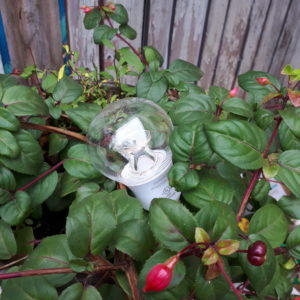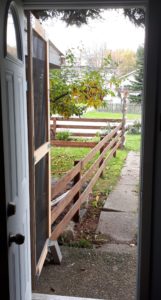In the Bachelor of Education program, so far, I feel like my greatest epiphany regarding teaching and learning is in the subject of First Nations principles and ideas. Before this program, my knowledge of First Nations cultures, ideas, and perspectives was what I now realize to be extremely limited. While I was interested in the topic, and had tried to explore it as a teenager, I felt that I had been shut down at every attempt. The learning was not supported, and the subject became scary. As an adult, I was embarrassed by this gap in my education and therefore sought to avoid the topic.
Immediately, learning about the Acknowledgement of the Territories and the importance of recognizing that we, as colonizers, are here today, wherever we are in Canada, on land that has a violent history and is not ours, trying to connect with people whose ancestors have been vilely treated, let them know that we are aware of the problems that still exist, we care, and will help to make changes, had a profound effect for me. I was forced me to face my own reluctance and identify my fears regarding learning and eventually teaching about Aboriginal cultures. With educators that are supportive of this area of inquiry, I quickly learned that First Nations people and groups are more than willing to facilitate learning. Contrary to my high school experiences, the local First Nations now want to be contacted, consulted, and included in education and in people’s lives. This makes sense when one thinks of the wholistic approach that First Peoples encourage for learning: everything is connected, so every aspect of life should be included.

Interconnectivity allows ideas to generate naturally.
An area of unexpected learning occurred in the first Education 393 class on Pedagogy, Curriculum, and Teaching, when Dr. Fraser introduced the idea of pre-colonization education. Of course, it makes sense that education had existed, but I had never thought about it before. As I think on the subject, it continues to grow in my mind: with the lack of today’s common learning aids (books, videos, etc.), a student has to learn from people, the subjects are not specific, but rather intertwined and interconnected, whether or not the teacher purposely highlights the connectivity that Dr. Fraser emphasized. The idea that people would learn from other people, being taught in a multitude of ways, including but not limited to, guidance, lecture, emulation, and hands on experimentation, just seems natural. It seems like what the curriculum is now approaching, thanks to the incorporation of First People’s Principles of Learning.
With program coursework delving into the issues of residential schools, I also learned more about the extent of persecution and genocide inflicted on First Nations peoples. While this is horrific, and definitely impacted my learning, what is more interesting to me is the current movement of non-violent push-back. As part of Reconciliation, the incorporation and valuation of First People’s Principles of Learning in the education system effectively puts First Nations cultures into the schools, where the colonial government sought to destroy it. I can personally attest that educating people to provide a deeper understanding and empathy for First Nations people and cultures is more effective than any act of suppression or violence. Using the former avenue of the destruction (schools) for the regeneration of First Nations ideals seems a little ironic, but in my opinion, nothing short of brilliant.
While having Aboriginal cultures in schools is particularly important for First Nations students, I love that incorporating the First People’s Principles of Learning is beneficial for all students. I am excited that students of Aboriginal ancestry will be able to recognize themselves and their culture within the learning material; they will be able to see their teachers and peers valuing and participating in aspects of their culture, feel pride, and a hopefully a sense of ownership of their education.I also fully appreciate that non-aboriginal students will have the opportunities that I did not to explore what they are interested in learning, and will not experience the same rejections, anxieties, and fears that my own early inquiries were met with.

The door is open to new learning opportunities.
Even though a vast amount of information and learning has occurred in this first part of the Bachelor of Education, I feel that these insights regarding First Nations principles and ideas have changed my approach to teaching and learning in fundamental ways. To risk sounding cliché, they have opened the door, allowed me to see beyond my preconceptions of teaching and learning, and into a landscape filled with opportunities to explore. I have learned that I am interested in exploring learning styles that I previously considered inaccessible for my own education. I have also learned that even group work, when executed correctly and with people who are of a collaborative mindset, can actually be valuable. That is something I never would have even considered a possibility a month ago! I am excited by the learning so far in the Bachelor of Education program at UNBC, and I look forward to what is next.
Leave a Reply